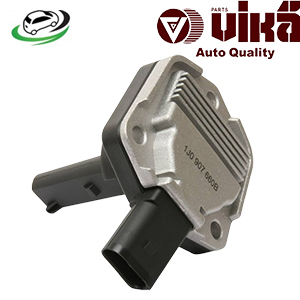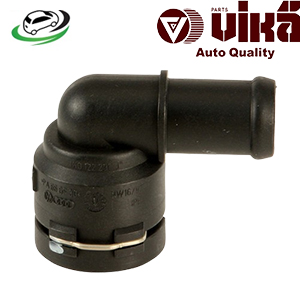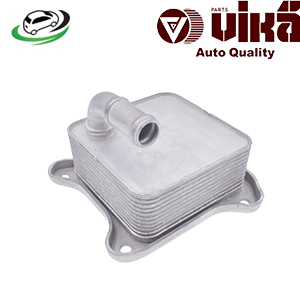-3%
Get AUDI A1 (8X1 8XK)/ A3 (8P1)/ A3 Sportback (8PA) / VW Golf VI (5K1)/ Jetta IV (162 163 AV3 AV2)/ Touran (1T3) Engine Oil Radiator Cooler 03F117021A
An engine oil radiator cooler is a vital component in modern vehicles that helps regulate the temperature of engine oil, ensuring optimal engine performance and longevity. This cooling system plays a crucial role in preventing overheating and maintaining the efficiency of the engine oil, which in turn protects critical engine components. In this article, we will explore the functions, benefits, common issues, and maintenance tips related to engine oil radiator coolers, highlighting their importance in the overall operation of an internal combustion engine.
1. Introduction to Engine Oil Radiator Coolers
The engine oil radiator cooler, often referred to simply as an oil cooler, is a type of heat exchanger designed to remove excess heat from engine oil. Engine oil serves several essential functions, including lubrication of moving parts, reduction of friction, and heat dissipation. As the engine operates, oil can reach high temperatures, especially under heavy load or during prolonged driving conditions. An oil cooler helps maintain the oil within a specific temperature range, ensuring that it remains effective in protecting the engine.
The oil cooler is typically installed near the engine and works in conjunction with the vehicle’s cooling system. It may be integrated with the radiator or operate as a standalone unit.
2. Functions of the Engine Oil Radiator Cooler
A. Temperature Regulation
The primary function of the engine oil radiator cooler is to regulate the temperature of the engine oil. As the oil circulates through the engine, it absorbs heat generated by friction between moving components. If the oil temperature exceeds the optimal range, the oil cooler dissipates this excess heat, ensuring that the oil remains effective in providing lubrication and protection.
B. Enhanced Oil Viscosity Control
Oil viscosity is crucial for proper engine operation. If the oil gets too hot, it can lose its viscosity, becoming too thin to provide adequate lubrication. The oil cooler helps maintain the oil’s viscosity within the optimal range, ensuring that it can effectively lubricate engine parts and reduce friction.
C. Extended Oil Life
By keeping the engine oil at a controlled temperature, the oil cooler helps prolong the oil’s life. High temperatures can lead to the breakdown of oil additives and the formation of sludge and deposits. By preventing excessive heat buildup, the cooler contributes to maintaining the oil’s performance characteristics for a longer period, reducing the frequency of oil changes.
D. Improved Engine Performance
When the engine oil is at the right temperature, it allows for optimal performance. The oil cooler ensures that the oil can effectively lubricate the engine components, reducing friction and enhancing overall engine efficiency. This can result in improved fuel economy and better throttle response, especially in high-performance vehicles.
3. Types of Engine Oil Radiator Coolers
Engine oil radiator coolers come in various designs, each with its advantages and specific applications. Here are some common types:
A. Air-Cooled Oil Coolers
Air-cooled oil coolers rely on airflow to dissipate heat from the engine oil. These coolers are typically equipped with fins or tubes that increase the surface area for heat exchange. As air passes over the cooler, it carries away heat, lowering the oil temperature. Air-cooled oil coolers are often used in high-performance applications where engine oil temperatures can become elevated quickly.
B. Water-Cooled Oil Coolers
Water-cooled oil coolers use the vehicle’s cooling system to dissipate heat. Engine oil flows through the cooler, where it is surrounded by coolant from the engine’s radiator. This type of cooler is more efficient than air-cooled versions and is commonly found in modern vehicles. It ensures that the oil is kept at optimal temperatures even under heavy loads.
C. Combined Coolers
Some vehicles feature combined oil coolers that integrate both air and water cooling methods. This dual approach can provide effective cooling in various driving conditions, making it suitable for high-performance and heavy-duty applications. Combined coolers offer the flexibility to utilize the benefits of both air and water cooling.
4. Benefits of Engine Oil Radiator Coolers
Engine oil radiator coolers offer several benefits that contribute to the overall efficiency and longevity of the engine:
A. Preventing Overheating
The primary benefit of an oil cooler is its ability to prevent engine oil from overheating. Excessive oil temperatures can lead to oil breakdown, reduced lubrication effectiveness, and increased wear on engine components. By maintaining the oil temperature within a safe range, the cooler helps prevent potential engine damage.
B. Improved Engine Longevity
By keeping engine oil at optimal temperatures and maintaining its viscosity, the oil cooler contributes to the overall longevity of the engine. The reduced wear and tear on moving parts extend the life of critical components, such as bearings, camshafts, and pistons.
C. Enhanced Performance
Properly cooled engine oil allows for better lubrication and efficiency. As a result, the engine can operate at higher performance levels without the risk of overheating. This is especially important in high-performance or heavy-duty applications where engines are subjected to extreme conditions.
D. Reduced Oil Consumption
By maintaining oil at stable temperatures and preventing breakdown, the oil cooler helps reduce oil consumption. This means less frequent oil changes and lower overall maintenance costs for the vehicle owner.
E. Environmental Benefits
Extended oil life and reduced consumption lead to fewer oil changes, which translates to less used oil entering the waste stream. This can have a positive impact on the environment by reducing oil disposal issues and the demand for new oil production.
5. Common Issues with Engine Oil Radiator Coolers
Despite their importance, engine oil radiator coolers can encounter several issues that may affect their performance. Below are some common problems:
A. Clogging
Over time, oil coolers can become clogged with sludge, dirt, and debris. This can hinder the flow of oil through the cooler, reducing its ability to dissipate heat effectively. Regular maintenance and oil changes can help prevent clogging.
B. Leaks
Oil cooler leaks can occur due to wear and tear, corrosion, or damage from road debris. A leaking oil cooler can lead to a loss of engine oil, resulting in low oil levels and potential engine damage. Regular inspections can help identify and address leaks before they escalate.
C. Corrosion
Corrosion can occur in both air-cooled and water-cooled oil coolers, especially if the coolant or oil contains contaminants. This can weaken the cooler’s structure and lead to leaks. Using high-quality fluids and performing routine maintenance can help mitigate corrosion risks.
D. Improper Installation
If an oil cooler is not installed correctly, it may not function effectively. Improper alignment or loose connections can restrict oil flow, leading to overheating and potential engine damage. It is essential to follow manufacturer guidelines during installation and maintenance.
6. Symptoms of a Failing Engine Oil Radiator Cooler
Identifying symptoms of a failing oil cooler is crucial for maintaining engine health. Common signs of a malfunctioning oil cooler include:
A. Overheating Engine
If the engine is consistently overheating, it could be a sign that the oil cooler is not effectively dissipating heat. Monitoring engine temperature and oil temperatures is essential for detecting potential issues.
B. Oil Leaks
Visible oil leaks around the oil cooler or in the vicinity of the engine can indicate a problem. If you notice oil pooling underneath your vehicle or a drop in oil levels, have the cooler inspected immediately.
C. Sludge Buildup
If you notice sludge buildup in the engine oil or on the oil dipstick, it could indicate that the oil cooler is not functioning correctly, leading to overheating and degradation of oil quality.
D. Warning Lights
Many modern vehicles are equipped with engine oil pressure or temperature warning lights. If these lights illuminate on your dashboard, it may indicate an issue with the oil cooler or the overall lubrication system.
7. Maintenance and Care for Engine Oil Radiator Coolers
Regular maintenance is key to ensuring that the engine oil radiator cooler functions effectively. Here are some tips for maintaining your oil cooler:
A. Regular Oil Changes
Performing regular oil changes is essential for maintaining oil quality and preventing sludge buildup. Follow the manufacturer’s recommendations for oil change intervals to ensure optimal engine performance.
B. Inspect the Oil Cooler
During routine maintenance, have the oil cooler inspected for signs of damage, leaks, or corrosion. Regular inspections can help identify potential issues before they escalate.
C. Monitor Fluid Levels
Keep an eye on both engine oil and coolant levels. Low levels of either fluid can indicate a leak in the oil cooler or other components, leading to overheating and potential engine damage.
D. Clean the Cooler
If the oil cooler shows signs of sludge or debris buildup, consider cleaning it. This can involve flushing the cooler with a suitable solvent or using compressed air to remove dirt and debris.
E. Professional Inspection
If you suspect issues with the oil cooler, consult a qualified mechanic for a thorough inspection. They can diagnose any problems and recommend necessary repairs or replacements.
8. Conclusion
The engine oil radiator cooler is a critical component of an effective engine lubrication system, ensuring that engine oil remains within an optimal temperature range. By preventing overheating and maintaining oil viscosity, the cooler helps extend engine life, improve performance, and reduce maintenance costs. Regular inspections, proper maintenance, and timely repairs can ensure that the oil cooler continues to function effectively, contributing to the longevity and reliability of your vehicle’s engine. Understanding the importance of this component is essential for any vehicle owner, as it plays a pivotal role in maintaining the health of the engine and enhancing overall driving performance.
Follow us on Facebook for more parts.




Reviews
Clear filtersThere are no reviews yet.